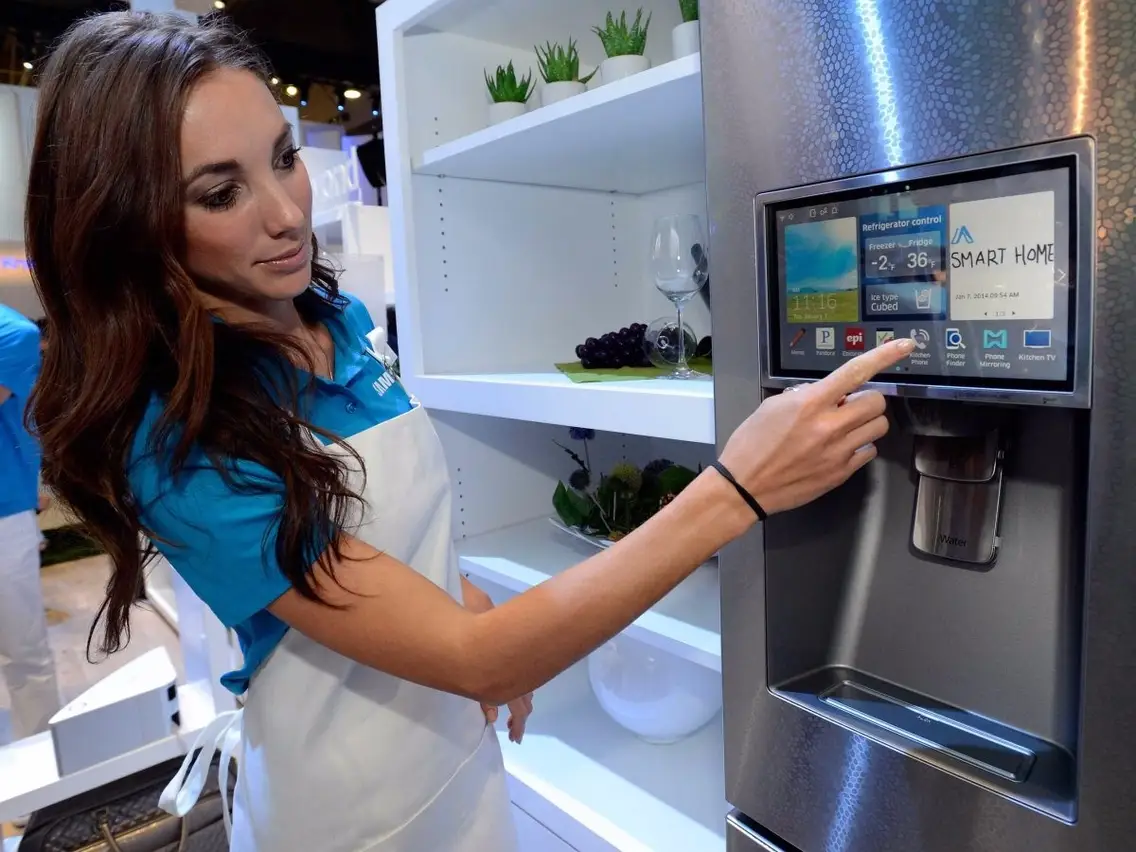The smart refrigerator market is projected to grow from USD 3,861 million in 2023 to USD 9,232.3 million by 2032, expanding at a compound annual growth rate (CAGR) of 10.00%.In today’s rapidly evolving technological landscape, smart appliances are becoming increasingly prevalent in households around the world. Among these, the smart refrigerator stands out as a quintessential example of how advanced technology can revolutionize everyday living. As consumers seek greater convenience, efficiency, and connectivity in their homes, the smart refrigerator market is experiencing significant growth and innovation.
Browse the full report at https://www.credenceresearch.com/report/smart-refrigerator-market
The smart refrigerator market encompasses a wide range of products equipped with advanced features such as internet connectivity, touchscreen interfaces, voice control, and built-in cameras. These capabilities allow users to remotely monitor and control their refrigerators, access recipes, track food inventory, and receive notifications about expiry dates and grocery lists.
One of the key drivers of the smart refrigerator market’s growth is the increasing adoption of smart home technology. As more consumers integrate smart devices into their homes, the demand for interconnected appliances like smart refrigerators continues to rise. Additionally, the growing awareness of energy efficiency and sustainability has prompted manufacturers to develop refrigerators with innovative features designed to minimize energy consumption and reduce food waste.
Another significant factor contributing to the expansion of the smart refrigerator market is the rapid advancement of artificial intelligence (AI) and machine learning technologies. These technologies enable refrigerators to learn users’ preferences, suggest recipes based on available ingredients, and optimize temperature settings to prolong food freshness. Moreover, AI-powered sensors can detect patterns in users’ behavior and provide personalized recommendations for grocery shopping, meal planning, and dietary preferences.
In recent years, manufacturers have introduced a variety of innovative features to differentiate their smart refrigerator offerings in the competitive market. These include:
1. Advanced Cooling Systems: Smart refrigerators equipped with state-of-the-art cooling systems utilize variable-speed compressors and precise temperature control to maintain optimal storage conditions for different types of food items.
2. Integrated Voice Assistants: Many smart refrigerators now feature integrated voice assistants such as Amazon Alexa or Google Assistant, allowing users to control various functions using voice commands and access a wide range of services and information.
3. Touchscreen Displays: High-resolution touchscreen displays embedded in the refrigerator doors provide users with intuitive interfaces for accessing apps, browsing recipes, viewing calendars, and leaving digital notes.
4. Camera Systems: Built-in cameras inside the refrigerator enable users to remotely view the contents of their fridge, check expiry dates, and receive real-time alerts about items that need replenishing.
5. Energy Efficiency: Manufacturers are increasingly focusing on designing energy-efficient refrigerators that comply with strict energy efficiency standards and offer eco-friendly features such as LED lighting and smart defrosting systems.
6. Data Connectivity and Cloud Integration: Smart refrigerators equipped with data connectivity and cloud integration capabilities allow users to sync their grocery lists, recipes, and preferences across multiple devices for seamless access and synchronization.
As the smart refrigerator market continues to evolve, several trends are expected to shape its future trajectory. These include the integration of advanced sensors for food quality monitoring, the incorporation of augmented reality (AR) technology for interactive shopping experiences, and the emergence of subscription-based services for food delivery and replenishment.
Furthermore, partnerships and collaborations between appliance manufacturers, technology companies, and retail giants are likely to drive innovation and expand the market reach of smart refrigerators. By leveraging synergies and combining expertise in hardware, software, and data analytics, these partnerships aim to deliver integrated solutions that enhance the overall user experience and streamline daily tasks related to food management and household chores.
In conclusion, the smart refrigerator market is poised for continued growth and innovation as consumers embrace the benefits of connected appliances and smart home technology. With a focus on convenience, efficiency, and sustainability, manufacturers are introducing increasingly sophisticated features and functionalities to meet the evolving needs and preferences of modern consumers. As a result, the smart refrigerator is not just a kitchen appliance but a cornerstone of the smart home ecosystem, offering convenience, efficiency, and peace of mind to users worldwide.
Key Player Analysis
- Haier
- Samsung Electronics
- LG Electronics Inc.
- Panasonic Corporation
- AB Electrolux
- Whirlpool
- Siemens AG
- Bosch Group
- Liebherr Group
- Frigidaire
- Midea Group
Segments:
By Type
- Top Freezer Refrigerator
- Bottom Freezer Refrigerator
- French Door Refrigerator
- Side-By-Side Refrigerator
- Others
By Distribution Channel
- Offline Channel
- Online Channel
By End User
- Residential
- Commercial
By Price Range
- Premium
- Economy
- Low
By Geography
- North America
- The U.S.
- Canada
- Mexico
- Europe
- Germany
- France
- The U.K.
- Italy
- Spain
- Rest of Europe
- Asia Pacific
- China
- Japan
- India
- South Korea
- South-east Asia
- Rest of Asia Pacific
- Latin America
- Brazil
- Argentina
- Rest of Latin America
- Middle East & Africa
- GCC Countries
- South Africa
- Rest of the Middle East and Africa
About Us:
Credence Research is committed to employee well-being and productivity. Following the COVID-19 pandemic, we have implemented a permanent work-from-home policy for all employees.
Contact:
Credence Research
Please contact us at +91 6232 49 3207
Email: sales@credenceresearch.com

Leave a Reply
You must be logged in to post a comment.